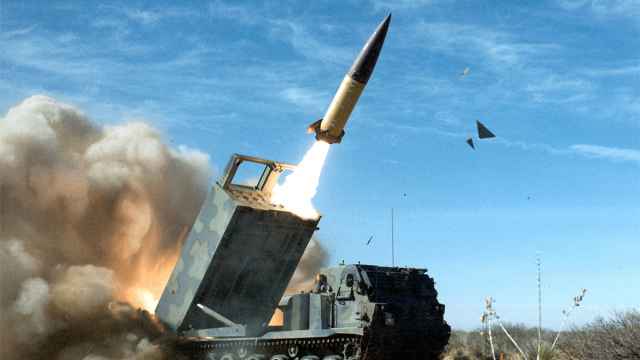Russia backs the efforts by Italian Prime Minister Silvio Berlusconi — who recently vowed to step down — to stabilize the European country's economy, although the general strategy to bolster the euro-zone bailout fund remains unclear, top Kremlin economic adviser Arkady Dvorkovich said Wednesday.
The measures taken by the Italian government to fight the debt crisis are "sufficient," and "we should support these actions all together," he told a news conference, RIA-Novosti reported.
The Italian prime minister "acts in the interests of his country and is doing everything" to preserve stability, Dvorkovich said.
Berlusconi, a close friend of Prime Minister Vladimir Putin, said earlier this week that he would resign after the government passes the plan to stabilize Italy's financial system. He first came to office in 1994 and is serving his third term as prime minister.
Berlusconi is "a person with a huge political will," and he's "ready to take serious steps, including personal ones, to stabilize [the situation]," Dvorkovich said.
Meanwhile, Dvorkovich said Russia is unclear on the general mechanisms to bolster the size of the European bailout fund, the EFSF, to 1 trillion euros ($1.36 million) — the size European leaders agreed to in late October.
"We don't understand … how the EFSF will work. This is one of the reasons why we're not ready to consider the opportunity to participate in such mechanisms directly and prefer to work through the [International Monetary Fund]," Dvorkovich said.
He echoed the thoughts of IMF chief Christine Lagarde, who said Tuesday that investors need more clarity on how the fund will work.
Russia, as well as its BRICS peers, has expressed commitment to helping the euro-zone countries resolve their debt problems through the IMF, and is hesitant to invest directly in the EFSF.
Dvorkovich said the IMF might need as much as $300 billion of additional funding to fight the euro-zone crisis, and Russia's contribution is likely to be in line with its current share in the fund, which amounts to about 3 percent.
"The IMF might need about $300 billion in case a negative trend emerges in general, and based on Russia's share in the IMF, it's clear what [the country's] share in this volume is," he said.
Dvorkovich didn't rule out that Russia could provide "a bit more," depending on the situation.
He added, however, that no specific decisions had been made on the issue yet.
He also said Russia, which is seeking greater weight for emerging economies in the IMF, has no intention of increasing its share in the fund significantly, and the additional financing that the country could provide to the fund will be "reasonable."
"The share depends primarily on the share of our economy in the IMF members' joint economy. It's unlikely to change quickly and dramatically, it just doesn't work that way," he said.
A Message from The Moscow Times:
Dear readers,
We are facing unprecedented challenges. Russia's Prosecutor General's Office has designated The Moscow Times as an "undesirable" organization, criminalizing our work and putting our staff at risk of prosecution. This follows our earlier unjust labeling as a "foreign agent."
These actions are direct attempts to silence independent journalism in Russia. The authorities claim our work "discredits the decisions of the Russian leadership." We see things differently: we strive to provide accurate, unbiased reporting on Russia.
We, the journalists of The Moscow Times, refuse to be silenced. But to continue our work, we need your help.
Your support, no matter how small, makes a world of difference. If you can, please support us monthly starting from just $2. It's quick to set up, and every contribution makes a significant impact.
By supporting The Moscow Times, you're defending open, independent journalism in the face of repression. Thank you for standing with us.
Remind me later.





